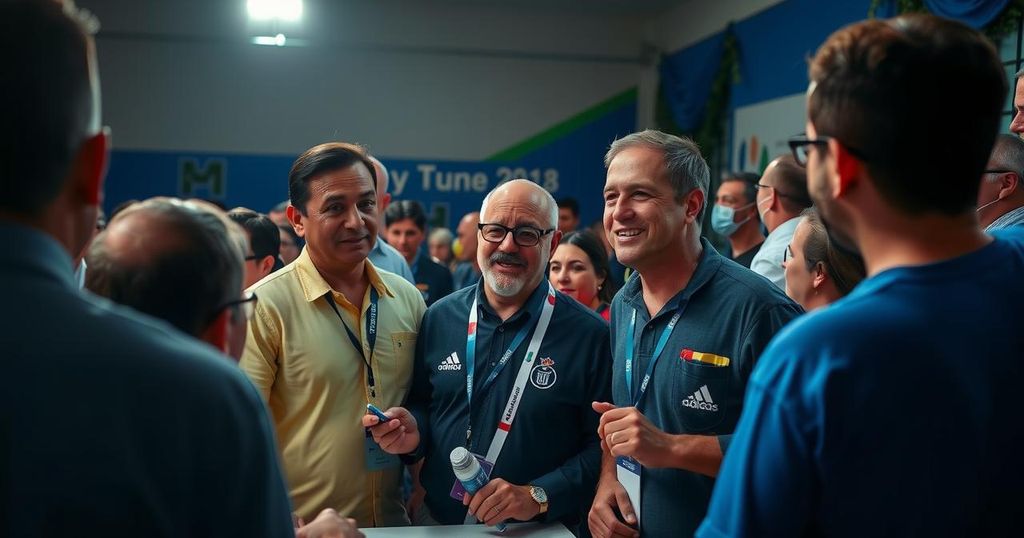Uruguayans are voting in a crucial presidential run-off election, choosing between leftist candidate Yamandu Orsi and right-wing Alvaro Delgado. With polls indicating a close race, voter turnout is essential, especially among those who either supported minor parties or did not participate in the first round. This election comes after five years of conservative governance, raising questions about public sentiment amidst economic challenges.
As voters in Uruguay engage in the presidential run-off election, they are confronted with a choice between the leftist Frente Amplio (Broad Front) candidate Yamandu Orsi and Alvaro Delgado of the National Party, part of the outgoing centre-right government’s coalition. The election follows five years under a right-wing administration and presents an opportunity for the leftist alliance, associated with former President Jose Mujica, to reclaim power. Voter turnout is crucial, especially for the approximately 8 percent of citizens who previously supported smaller parties or did not participate in the first round of voting in October.
Polling stations opened at 8 a.m. and are scheduled to close at 7:30 p.m., with initial results anticipated within two hours of voting’s conclusion. With final opinion polls indicating a closely contested race, the separation between candidates is expected to be a mere 25,000 votes, highlighting the critical nature of voter participation. Unlike other regional elections characterized by intense political division, Uruguay’s political landscape boasts a more moderate atmosphere, suggesting a milder impact from the election results.
President Lacalle Pou has garnered a 50 percent approval rating during his term; however, his administration has faced challenges regarding public safety despite improvements in employment and wages. Orsi, who emphasizes a “modern left” policy, previously achieved 43.9 percent of the votes in the first round, while Delgado captured 26.8 percent but benefits from the backing of the centre-right conservative Colorado Party. The dynamic suggests that despite a close contest, both candidates may struggle to appeal to voters dissatisfied with the current administration, particularly those affected by inflation and rising living costs.
In assessing Uruguay’s current political landscape, the focus centers on the presidential run-off election, pivotal for determining the nation’s governance following five years under a right-wing coalition. The election features candidates from both significant political blocs, underscoring a rare moment where a left-leaning alliance, particularly the Fuerza Amplia led by Yamandu Orsi, confronts the National Party’s Alvaro Delgado. Amidst a broader context of global incumbency challenges, this electoral contest raises questions about voter sentiment in a nation where moderate governance has largely prevailed over stark partisan divides.
The Uruguay presidential run-off election encapsulates a critical juncture in the nation’s governance, presenting a significant decision for voters between the leftist and right-wing parties. With close polling indicating a potential shift in control, the outcome may reflect broader trends in electoral behavior amidst economic pressures. Voter engagement, especially from those previously unnoticed or aligned with smaller parties, will ultimately determine whether the political tide turns in favor of the left or maintains the current conservative coalition.
Original Source: www.aljazeera.com







